| |
'And one guy said "Michael Bay is never gonna make a good movie until he learns how to make a movie about two guys in a room talking." And I thought that was ridiculous, but I did start wondering what a Michael Bay movie set in one room with two guys talking would be like. Because that means it has to be a story that's big in scope, because that's how Bay is gonna make a movie, but it's gotta be just two guys talking. So how big a story could I put into a very small space was my challenge.' |
| |
The Booth at the End creator and writer Christopher Kubasik * |
In the creative but often ruthlessly commercial world of American television, it seems genuinely astonishing that a series like The Booth at the End could get funded in the first place. I certainly can't see the pitch firing up the interest of a major TV or even cable network (I'll be coming back to this). First up, it's a completely dialogue driven show, and I do mean completely. Just about the only thing that anyone does throughout the run of the two short series it ran for is sit and talk, and every conversation is conducted with the same person. On top of that, there's only one location, and we're not talking somewhere expansive like a fairground or a TV studio but a diner, and we're confined to just one corner of that, the eponymous booth at the end. Wow, we just can't wait to throw money at this show. And if that description has you twitching in your seat and wondering what else might be coming out on DVD this month that better deserves your attention, then know this: The Booth at the End is one of the most inventive and quietly gripping shows I've watched in years.
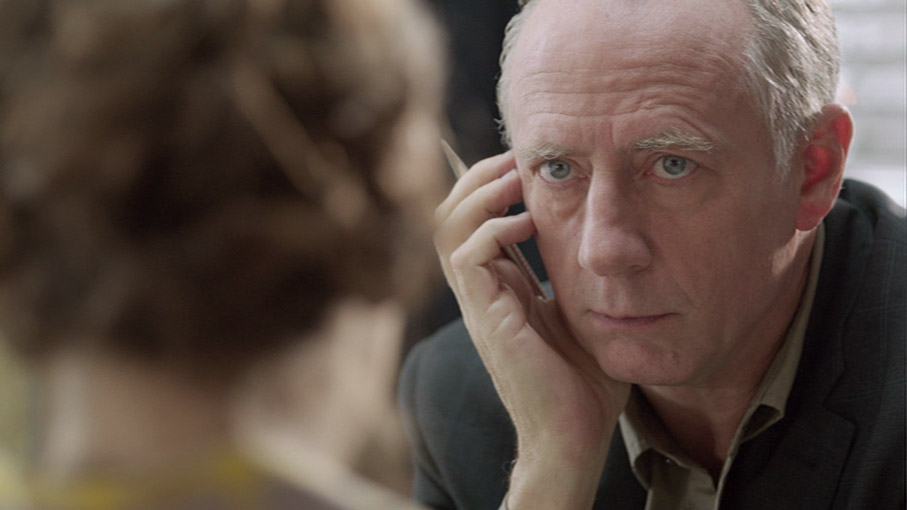
Let's start with the setup. A man whose name we never learn sits in the end booth of a diner, intermittently eating and drinking and armed only with an old notebook, and is visited by a succession of individuals who have heard from others about the service that he offers. Each of them wants something that they believe will change their lives for the better, and word is that The Man has the power to make this happen. In order for their wishes be granted, he sets each of them a task and asks them to regularly report back to him on their progress. When the individuals in question complete their assignments they will get their wish. If they elect not to see it through then their lives will carry on as they would have had they never entered the diner. Intrigued? You don't know the half of it.
Right from the get-go, it's clear that almost all of the set tasks require the individuals in question to act against their beliefs or better nature, or to engage in activities they would never otherwise have contemplated: a man looking to hook up with a centrefold model is told to protect a young child that he has never met from an unspecified danger; a nun seeking to hear God again is required to get pregnant; a young woman who wants to be prettier is tasked with stealing $101,043 by robbing a bank; a teenage girl who wants her father to be happy has to locate a shut-in and get him or her to leave their house. None of them know how to even take the first step in activities that are effectively alien to them, but The Man offers no guidance – it's all down to them to research and plan their set assignments and carry them out. Any attempt to lie about their progress is instantly seen though, but once they begin their preparations they may start to see signs that their wishes will actually be fulfilled.
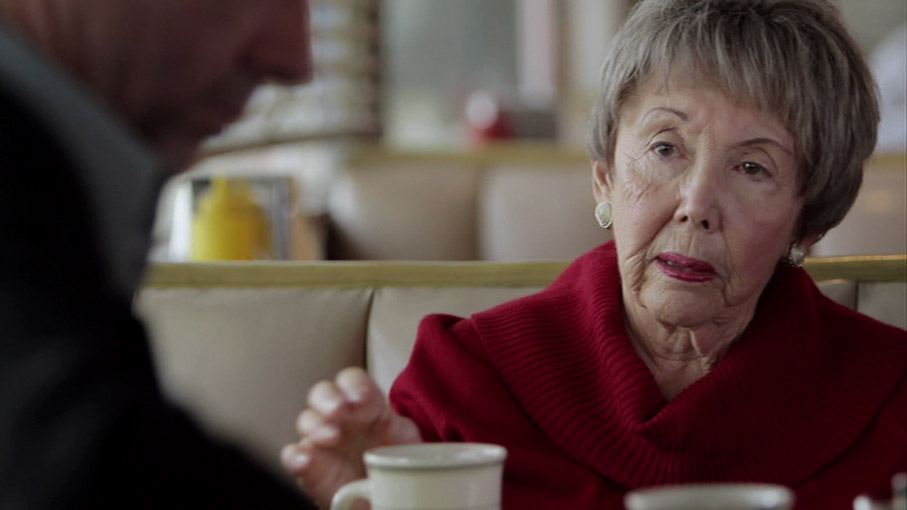
While this may seem to provide a perfect gateway to staging each of the tasks as simultaneously unfolding dramas full of tension and uncertainty, creator and writer Christopher Kubasik flies in the face of the film dictum that you should not tell the audience what you can show them by doing the exact opposite, dramatising nothing and cluing us in to what has taken place through the verbal reports delivered by the individuals to The Man. But in doing so he makes the people and the choices they make or struggle with the prime focus of the show – it's not about what they do but the effect that the decisions they are forced to either make or decline have on them. And while wants-to-be-prettier Jenny proves to be our first episode gateway to how this agreement functions, other tasks are already in progress when we first meet those charged with carrying them out. Initially it's these that prove the most intriguing, inviting us to unpick the details from conversations not written with exposition in mind. Thus we're initially left to wonder just what family man Jerry is required to do to a little girl "who's not lived that long," and who agitated detective Allen will have to kill in order to locate a spoils from a bank robbery. Preconceptions play some eye-widening games with our expectations here, as its slowly dawns on us over the course of several encounters that in order to free her husband from the grip of Alzheimer's, the elderly and frail-looking Mrs. Tyler has been instructed to build a bomb and kill as many people as possible.
But just when we think we have a handle on each of the multiple stories, it starts to become clear that some of them are set – and perhaps even designed – to interconnect and even conflict with each other. Thus the little girl James selects to be his victim turns out to be the very same one that centrefold model-chasing Willem has picked to protect from harm, and when determinedly unattached artist Simon is required to become a father to paint the beautiful picture he has always dreamed of creating, it seems inevitable that he will eventually meet and be inspired by Sister Carmel, the nun tasked with becoming pregnant to rediscover God.
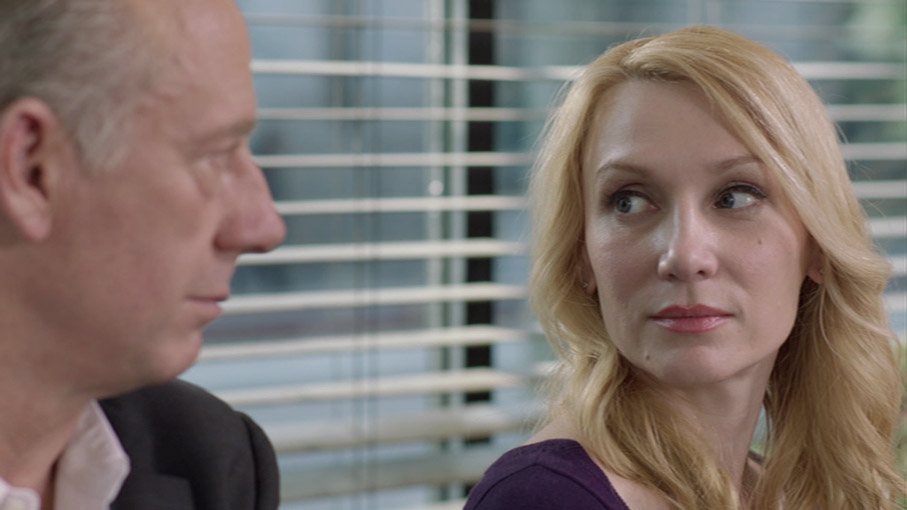
Just who The Man is has been a hot subject for fan speculation since the series began. We are occasionally teased with more obvious possibilities – "How can I know you're not the Devil?" Sister Carmel asks, to which The Man calmly replies, "You can't" – but given that the show itself is allegorical in nature this hardly seems to matter. Repeatedly The Man assures his customers that it is they rather than he that cause their wishes to come true, while the tasks that he sets them are not of his choosing but (apparently) written down in the battered old book in which he makes notes on their progress. His primary purpose appears to be to prompt people to re-examine their lives, to appreciate the good in them and face up the effects of dramatic change or loss, and to seriously consider what they would be prepared to do in order to achieve their chosen goal. In the process both he and the show itself confront some difficult questions of morality – would you, for example, be prepared to save the life of your child if it meant killing another in his or her place, particularly if you had to deliver the fatal blow yourself? If your child then survived, could you live with the knowledge of what you had to do to ensure that happened, actions that will upset the natural order and transform your own life in a manner that may well haunt you for the rest of your days, and even change how you view your offspring from that point on?
That this process of wish-granting initially appears to be supernatural in nature is repeatedly tested when things start to go well for the customers, whose desires are satiated (in part or in whole, depending on how far they have progressed with their tasks) by what seems like a happy combination of chance, natural design or intervention by one of The Man's other clients in their unknowing pursuit of their own set goal. This paints The Man less as an other-worldly destiny changer than a skillful and well-connected arranger who also happens to be an astute judge of character. Then, just as we're buying into this interpretation, series 1 hits us with a humdinger of a parting exchange that forces a rethink of everything we may have previously assumed.
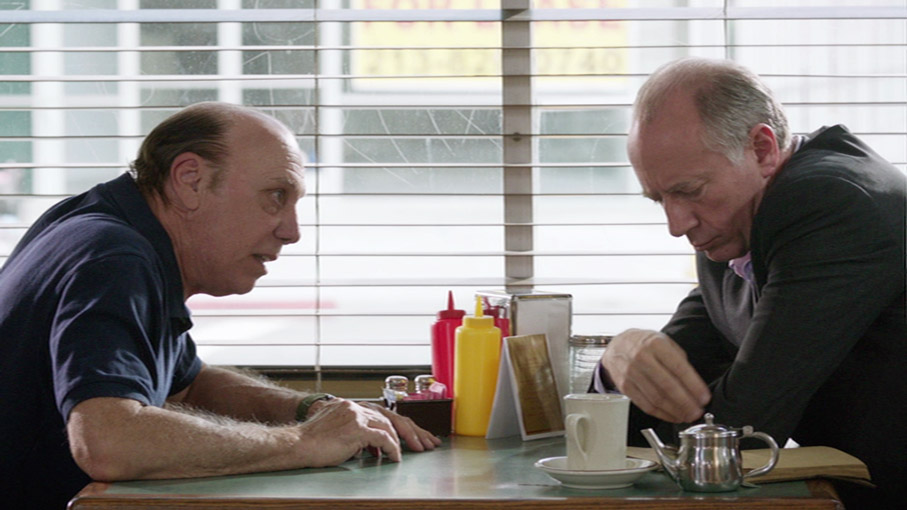
It's thus no surprise that the game is upped in the second season, where The Man has relocated to a different diner (is he on the move in an attempt to evade capture or as a spiritual sightseer?) and his likely status as a facilitator for some higher power shifts to suggest that the being in question is actually a group. It's even hinted that he may have gone rogue and is now operating outside of his originally designated role, like an extraterrestrial visitor seeking to understand the desires and needs that motivate humankind. He certainly seems driven in part by curiosity and never refuses a request, however extreme or amoral it may seem to us mere mortals. A key trigger for these new suppositions is the return of Doris, a curious waitress from the first diner who has tracked The Man down and may be considerably more than she seems. The stakes are also raised by the nature of the requests The Man receives, as a young boy he initially tries to brush off demands to know what the age limit is to procure his services, and an embittered old man wishes to wipe out an entire religion and all of its practitioners, a request that requires him to slaughter 22 people in broad daylight in front of witnesses, an action even he realises will likely result in his own death.
The performances are excellent across the board and the casting is spot-on, and includes a small spattering of familiar faces – artist Simon is played by Timothy Omundson, who found fame as hassled detective 'Lassie' in Psych, while suitably creepy as potentially genocidal bigot Jack is Dayton Callie, so memorable as cancerous Sheriff Wayne Unser in Sons of Anarchy. But rightly stealing the show is veteran of over 200 films and TV shows, Xander Berkeley as The Man, whose low-key performance is so sublimely judged and nuanced – so much of his role is about observation and reaction – that I'd happily take both series with me to a desert island just to watch and re-watch him at work.
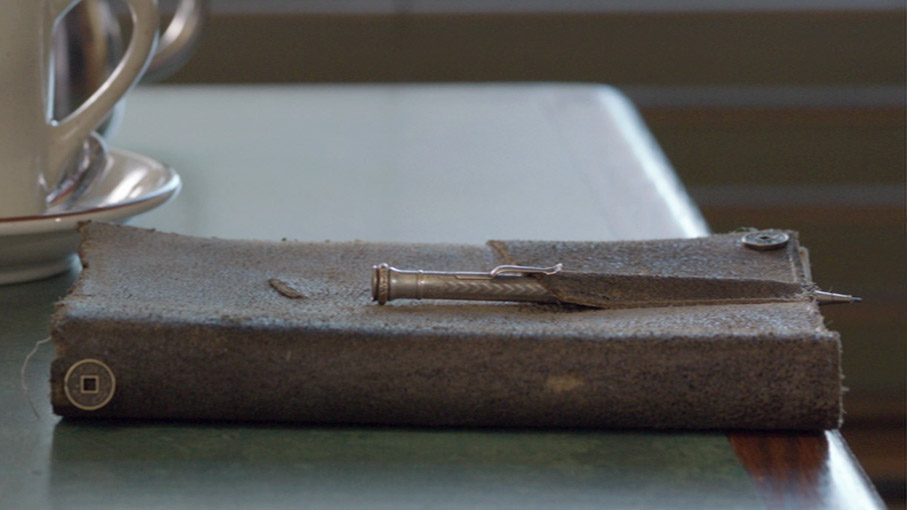
All of which brings me back to my opening question of just how you get a series like this – albeit one consisting of just two seasons of five 20-minute episodes each – funded by a major American television network. Well as it turns out, you don't. To my very real surprise, The Booth at the End was designed and produced as a web series, which proved instrumental in Kubasik's determination to tell a story that was small in scale (for that read low budget) but large in scope. And he absolutely pulls it off, as these very constrictions helped to shape and give birth to one of the most intelligent and original (non) TV shows of recent years, one whose writing, casting, performances and direction are, in their deliciously inventive and small-scale way, right up there with the best you'll find anywhere on American network or cable TV at present.
Given the intimate nature of this series, it may seem odd for me to pine for a Blu-ray rather than DVD release, but for some reason the faces and expressions that are so crucial to the drama here just seem to cry out for the crispness and sharp detail of an HD transfer. Of course it probably doesn't help that I first watched the show as an HD download and the memory of how it looked then has really stayed with me since. There's certainly nothing wrong with the 1.78:1 anamorphic transfers on the two DVDs in this set – the image is clean, the colour nicely rendered and the contrast well balanced. The detail is good, though not quite up there with the best small screen SD transfers (try Breaking Bad or House M.D.), and that very slight softness (at least on a large plasma) is the thing that triggered my yearning for a Blu-ray edition. Those who share any preference might like to know that both series are available on iTunes in HD – if you prefer your viewing material to be disc-based, know that there is no Blu-ray release of the series available anywhere as yet.
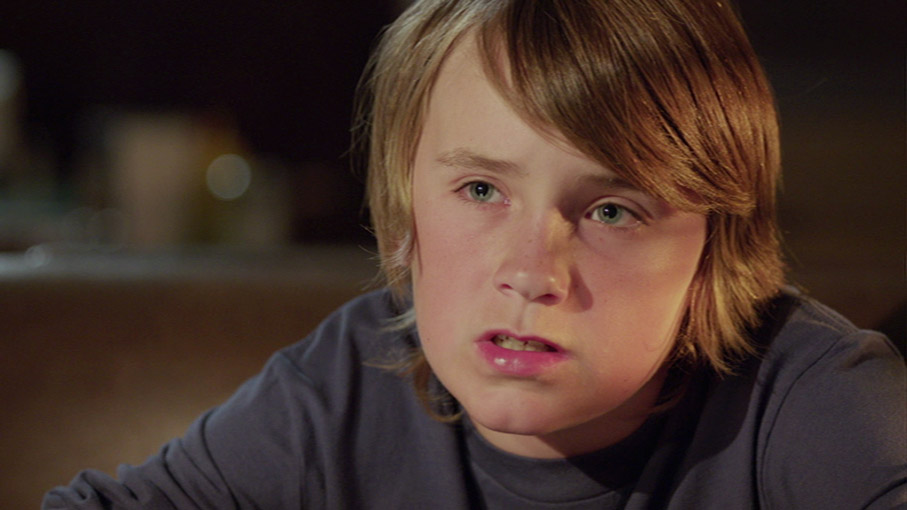
The Dolby 2.0 stereo soundtrack serves the show well, with the clearly rendered dialogue very well mixed with Tree Adams' and John Swihart's subtle and almost invisibly unsettling music score and a most effective use of ambient sound.
Disappointingly, not a thing. An interview with Christopher Kubasik on the genesis and making of the show would have been most welcome.
A couple of weeks back I was visiting a friend who had never seen nor heard of The Booth at the End. Late in the evening it came up in conversation, and after my description of the central concept, my friend suggested we watch the first episode before I headed home. Such is the nature of that opening 20 minutes that there was no way we could just leave it at that, and we were three episodes in before I really had to call it quits and make my way home (my friend continued watching the rest without me). I'm certainly biased here, as The Booth at the End is one of my favourite shows in recent years and a series that I've for some time believed should find a far wider audience than the dedicated cult following it has attracted since its initial release. Whether you plump for Simply Media's DVD set or the (similarly priced) HD download on iTunes will be down to personal preference and your current viewing setup – either way you should definitely hunt it out, but be ready for the fact that season 2 ends on a note that will likely have you aching for the third season that, four years on, has yet to appear.
* http://blogcritics.org/interview-the-booth-at-the-end/
|